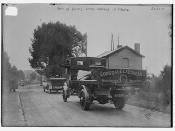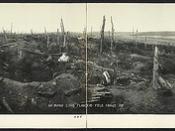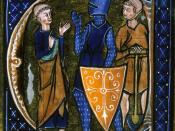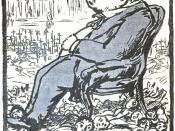Like that of the other Continental countries, France society was characterized by rigid class distinction. The people of France were divided in to three estates or classes of people.
The feudal system had a strong clenching fist over most of Europe. Most of the European countries used the feudal system. The country would have three estates mainly consisting of the: the 1st estate, the nobility and the third estate. In France there was a group of people in the third estate who known as the "bourgeoisie" they were mainly bankers, merchants, traders, and were professional doctors, lawyers, teachers and writers. They were well educated and they had lived in the cities all their lives. The "bourgeoisie" were hard done by the fact that they were part of the third estate. The "bourgeoisie" were unhappy about the fact that they didn't get the same privileges and rights as the nobility. They resented the restrictions under which they lived.
They particularly resented their exclusion from the most important positions in the church and state. They were even more disillusioned by the state because they had denied the freedom of religion, freedom of the press or freedom of speech. The third estate writers had to be very careful of what they wrote in there books, because they could have been imprisoned with out trial (lettres de cachet) The "bourgeoisie" contributed a large portion towards the State's taxes; the middle class had no share in the administration of the country. A lot of dissatisfaction came about when the many of restrictions were imposed by the guilds and with the heavy deus (taxes imposed by an authority). These factors caused great concern (by the members of the middle class) of the restrictions on the trade industry.
From this the leaders of revolution would emerge.
The French peasants suffered very heavily domination, but on the whole they were better off than their counterparts in central Europe, because of the freedom enjoyed by France let the peasants have higher aspirations than the other country's peasants. They gained about one third of the country's land. However they lost about 80% of their income in taxes. These taxes and feudal duels, like the tithes to the church, the taille, gabelle and the corve'e to the state, led to great resentment and dissatisfaction. The state of the serfs therefore was nothing better than slavery.
The vast majority of the third estate were peasants they were personally free and owed land. They would pay taxes for using the land and would have to give half of their harvest to the state. They were among the poorest people in France and they were being taxed the most. They poorest peasants worked as laborers.





